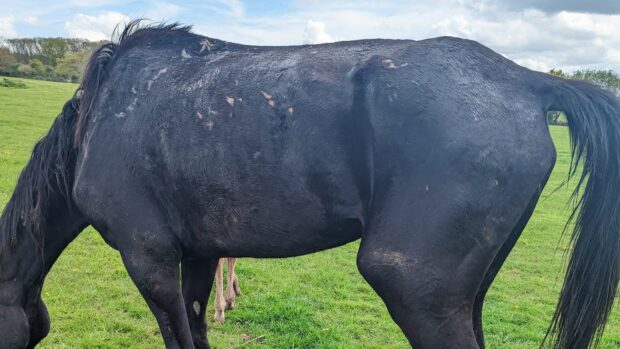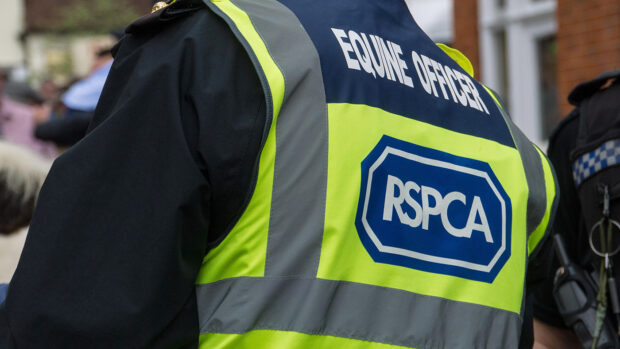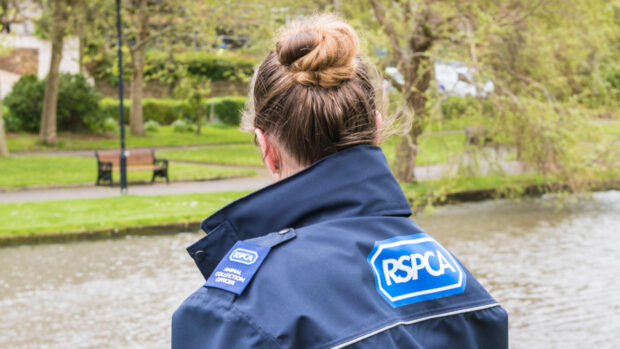A “root and branch” review of equine traceability in Ireland, following shocking scenes and vulnerabilities unearthed in an RTÉ documentary last summer, has warned of further reputational damage and food safety risks unless action is taken.
Patrick Wall, a professor of public health, vet, medical doctor and food safety expert, was commissioned by Ireland’s Department of Agriculture, Food and the Marine (DAFM) to review its equine traceability system. The programme, Horses – Making a Killing, showed the failures of fragmented traceability systems.
He highlighted issues connected to a “fundamentally weak” system of recording ownership changes, late reporting of horse deaths – amid other “weakness” in this area – imported horses at risk of being “invisible” to the system, contradictory guidance for owners and the free movement of horses between the Republic of Ireland and Northern Ireland.
Professor Wall warns that “comprehensive reforms are necessary” and that there “must be zero tolerance for substandard equine welfare at any stage of a horse’s life”.
He recommends mandatory, real-time updates on movements, ownership, imports/exports and deaths, enhanced enforcement and resources, plus increased collaboration with Northern Ireland for harmonised traceability measures. He also urges the implementation of “humane and practical end-of-life solutions for horses, including the establishment of a properly regulated equine slaughter facility”.
“If existing loopholes are not addressed, the issues exposed [by RTÉ] could easily recur, risking further reputational damage to Ireland as the ‘land of the horse’,” states Professor Wall’s introduction.
“The equine industry relies on public trust and support to maintain its social licence to operate, and it must demonstrate its commitment to transparency and accountability.
“Food production is one of Ireland’s key indigenous industries, and our reputation as a global leader is founded on stringent food safety standards and robust animal welfare practices.
“Any incidents that call the effectiveness of our controls into question risk undermining trust in international markets. To safeguard this trust, consistency in compliance and control is essential across all sectors, including beef, dairy, lamb, pork, poultry and equine.
“If an operator is willing to falsify the identity of a live horse, it raises serious concerns that they might just as easily change the identity of a box of horse meat to pass it off as beef, a practice at the heart of the pan-European fraud uncovered in 2013.”
Professor Wall concluded that as a country renowned for both food production and the breeding and production of world-class horses, “Ireland has a unique opportunity – and responsibility – to lead by example” and that “swift action could be achieved in Ireland”.
He sets out how a user-friendly, integrated, digital system would improve traceability as part of 30 recommendations, from which the DAFM has produced an action plan with specific deadlines in 2025 and 2026.
The action plan centres on technology and also includes plans for better enforcement of laws. Its five overarching aims are: ensure owner accountability through better traceability, stricter enforcement of equine ID and registration legislation, highest level of protection for horses at end of life, maximising the benefits of scientific and technology innovation and strong communication and influence.
In his introduction to the action plan, DAFM minister Martin Heydon said he agrees with the findings of Professor Wall’s report and that the purpose of the action plan is to ensure Professor Wall’s “proposed reforms result in concrete action”.
“In assessing what action needed to be taken in response to the issues raised by the documentary, it was clear that poor standards of equine welfare are symptoms that have emerged through gaps in equine traceability,” he said.
“I am serious about bringing accountability to the sector through better traceability so that all horses can be protected from suffering, particularly at the end of life.”
H&H contacted the DAFM to ask how much it would cost to execute the action plan and if funding will be made available. A DAFM spokesperson told H&H that “sufficient resources will be made available” but that it isn’t currently possible to say “what this will entail in financial terms”.
Horse Sport Ireland (HSI) said it “welcomes the publication” of the report and “supports its recommendations aimed at strengthening equine traceability, transparency and welfare protections across Ireland and beyond”.
Read Professor Patrick Wall’s full report and the related action plan
- To stay up to date with all the breaking news from major shows throughout 2025, subscribe to the Horse & Hound website
You may also be interested in:

‘We’re delighted to bring loyal readers this benefit’: H&H magazine subscribers get free website access

*Exclusive* Are horses any more traceable since the shocking ‘Horses – Making a Killing’ TV documentary… and what else needs to be done?

‘Horses let down in every way possible’: action taken after documentary exposes horrific scenes





